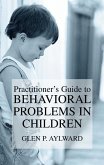Since the early 1800's, children have been taught and encouraged to function as instructional agents for their classroom peers. However, it was not until the last decade that peer-mediated intervention was studied in a rigorous, systematic fashion. The purpose of this edited volume is to provide an up-to-date and complete account of empirical research that addresses the general efficacy of classroom peers as behavior change agents. As a result of various social and legal developments, such as the passage of Public Law 94-142 and its accompanying demand for indi vidualized instruction, peer-mediated interventions seem likely to prolif erate. As I have noted elsewhere (Strain, this volume), close adherence to the principle of individualized programming has rendered obsolete the "adults only" model of classroom instruction. Whether the utilization of peers in the instructional process comes to be viewed by school personnel as a positive adjunct to daily classroom practices depends in large mea sure on our ability to carefully design, conduct, and communicate the findings of applied research. I trust that this volume will function both to accurately communicate existing findings and to stimulate further study. My colleagues who have generously contributed their time and skill to this volume have my deepest appreciation. They have performed their various tasks in a timely, professional manner and, in my opinion, have provided considerable insight into the problems and potentials of peers as instructional agents.








